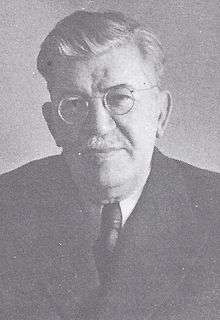Aleksandar Belić

Aleksandar Belić (August 15, 1876 – February 26, 1960) was a Serbian linguist.[1]
He was born in Belgrade. After studying Slavic languages in Belgrade, Odessa and Moscow, he received his Ph.D. in Leipzig in 1900. He worked at the University of Belgrade and Belgrade Higher School during his academic career. He was a member and longtime president of the Serbian Academy of Sciences.[1]
Belić is generally considered the leading Serbian linguist of the first half of the twentieth century. His research deals with comparative Slavic studies, general linguistics, Serbo-Croatian dialectology and syntax. He authored Pravopis srpskohrvatskog književnog jezika ("Orthography of Serbo-Croatian literary language", 1923) which was based on a strictly phonological spelling principle. He wrote extensively on Čakavian and Kajkavian speeches and made a significant contribution to the Slavic accentology with his discovery of Slavic neoacute accent in Čakavian. Belić introduced tripartite division of Kajkavian according to reflexes of Proto-Slavic /*tj/ and /*dj/, which was first published in Stanojević's Narodna enciklopedija srpsko-hrvatsko-slovenačka ("Serbo-Croatian-Slovene National Encyclopedia", 1927), though disproved by later dialectological studies. He contributed to the acceptance of the so-called Belgrade's style of the Serbian literary language. During his entire life he was a consistent advocate of a unified Serbo-Croatian language.[1]
He died in Belgrade.
References
- 1 2 3 "Belić, Aleksandar", Croatian Encyclopedia (in Croatian), Leksikografski zavod Miroslav Krleža, 1999–2009, retrieved February 28, 2014
|